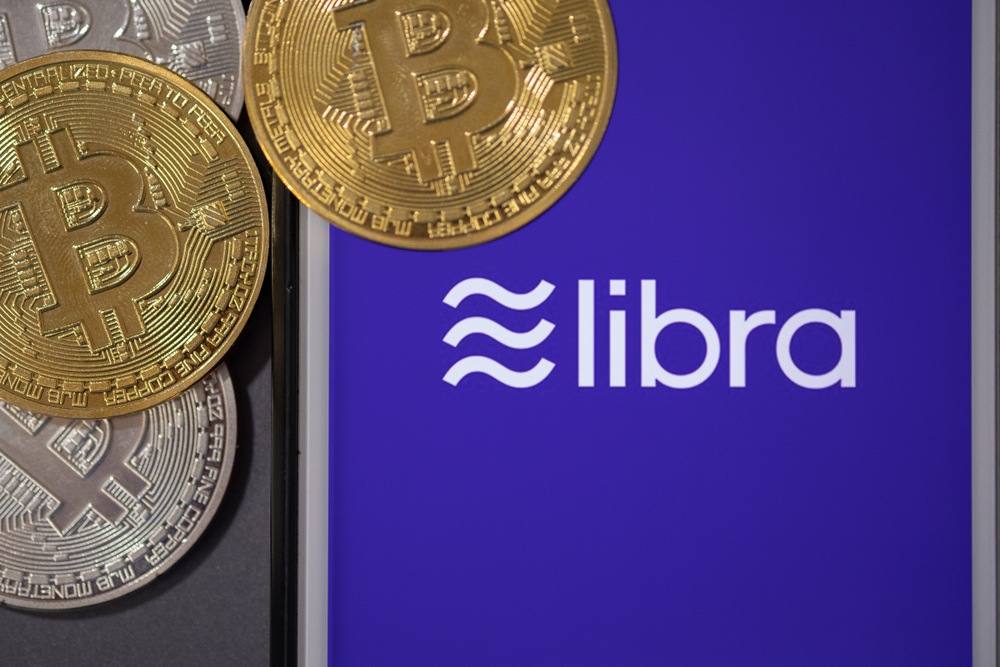Article Highlights:
- Facebook’s new coin is set to launch in 2020.
- It will finally bring financial inclusion to 1.7 billion people without bank accounts.
- Eventually this new system will engender a massive credit bubble.
Facebook has 2.3 billion monthly active users, which is 50 times more than the current number of existing bitcoin wallets.
That makes its new cryptocurrency, libra, a big deal for the crypto markets.
Facebook officially announced libra earlier this week. The new coin, which has 28 corporate partners, is set to launch in 2020.
Libra instantly opens up crypto to billions of users who might not have even heard of bitcoin.
Similar to bitcoin, libra will be available to people without bank accounts or credit cards.
The major difference from bitcoin is that libra’s value is tied to government-issued currency, such as the U.S. dollar. This is also known as a “stablecoin” because it maintains a stable value (if you consider the U.S. dollar to be stable).
Unlike other cryptocurrencies, libra doesn’t have the potential to skyrocket 100 times in value. That’s because one libra coin will be backed by one U.S. dollar in a bank somewhere. (Or at least that’s how it will start off.)
Bitcoin, on the other hand, is decentralized money. There’s no government or corporation that sets the price. In that way, it’s been viewed as an alternative to government-backed money.
Facebook plans to integrate libra into its messaging apps, WhatsApp and Facebook Messenger. This is similar to Apple Pay, where iPhone users can make payments with their smartphone at merchants who accept it.
If you’re wondering whether or not you’ll need libra initially, the answer’s probably no.
The lowest-hanging fruit for libra is the $500 billion remittance market, in which people send money to family living in another country. That’s bad news for Western Union, which saw its shares drop a modest 2% this week.
However, libra’s likely to usher in a new era of finance. And if history’s any guide, it will lead to the same financial manias and panics we’ve seen throughout human history…
The Dawn of Decentralized Finance
The creation of money doesn’t always involve a printing press.
Money creation also happens when one party borrows from someone else for a specified time and rate. That’s called credit.
When credit’s increasing, the economy’s growing and things are great. However, when credit contracts, it’s the opposite.
If credit contracts too rapidly, and everyone’s trying to get their money from borrowers at the same time, you wind up with what happened in 2008.
For most of human history, banks have been at the center of credit growth. They’ve been the arbiters of who’s creditworthy and who isn’t.
But libra, like it or not, just ushered in a new era in finance.
And for the first time, this new era of finance won’t rely on the banks to create money.
This new age is called “decentralized finance.” Or DeFi, for short.
Cutting out the Middleman
In DeFi, we no longer need banks and bank accounts.
Sure, maybe you like waiting in line at your local Citibank because they hand out lollipops for the kids and dog treats for the pups.
But with libra, anyone, anywhere can now store something that represents a U.S. dollar in a secure account on their smartphone. And to access your libra coins, all you need is an internet connection.
This is huge news for the developing world.
Over one-third of the global adult population doesn’t have a bank account. The road to financial inclusion for billions of people leapfrogs the current banking system.
All you’ll need to be part of the global financial system will be an internet connection and a smartphone. That means people will be able to act as banks by lending digital money to borrowers in far-off places.
Under the new age of DeFi, we’ll see a period of rapid credit growth in the next decade. It will cause economies and stock markets around the world to skyrocket.
Banks, who have always served as the middleman between lender and borrower, will be cut out of the transaction. Lending fees will be lowered, and data will better help us determine who’s creditworthy and who isn’t.
But eventually this new system will engender another credit bubble.
It Won’t Be Different This Time
We’ve seen this movie before.
Every few decades, we utilize the technology du jour to devise a scheme to create more credit under the guise of less risk. Our mantra is always: “It’s different this time.”
But it’s never different.
It wasn’t different in 2008, when the housing bubble burst…
It wasn’t different in 2000, when the dot-com bubble burst…
It wasn’t different in the late ’80s, when savings and loans were collapsing left and right…
And it won’t be different this time. It will be fun on the way up and painful on the way down.
But at least you’ll have bitcoin as an alternative to the U.S. dollar.
Regards,
Ian King
Editor, Automatic Fortunes
